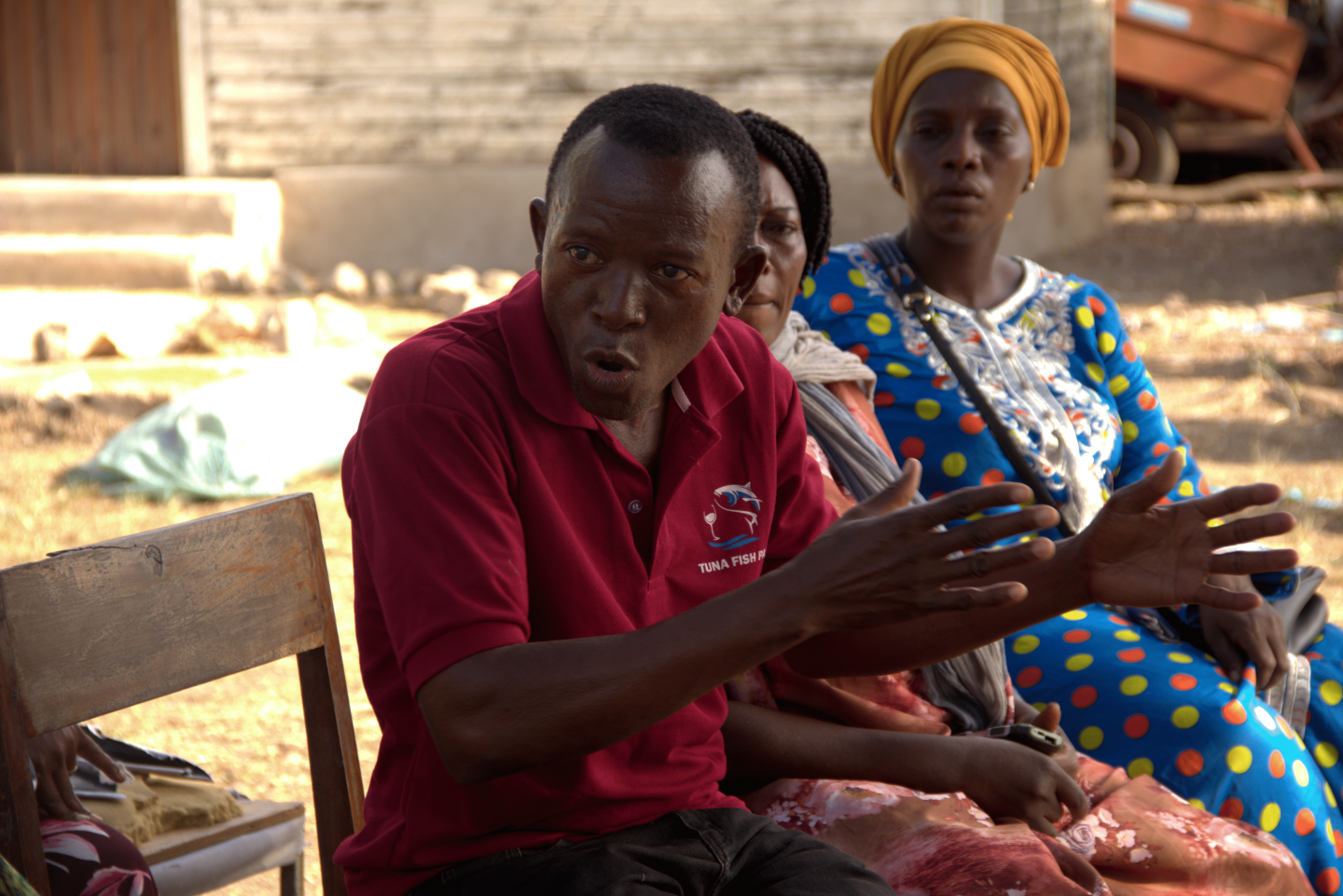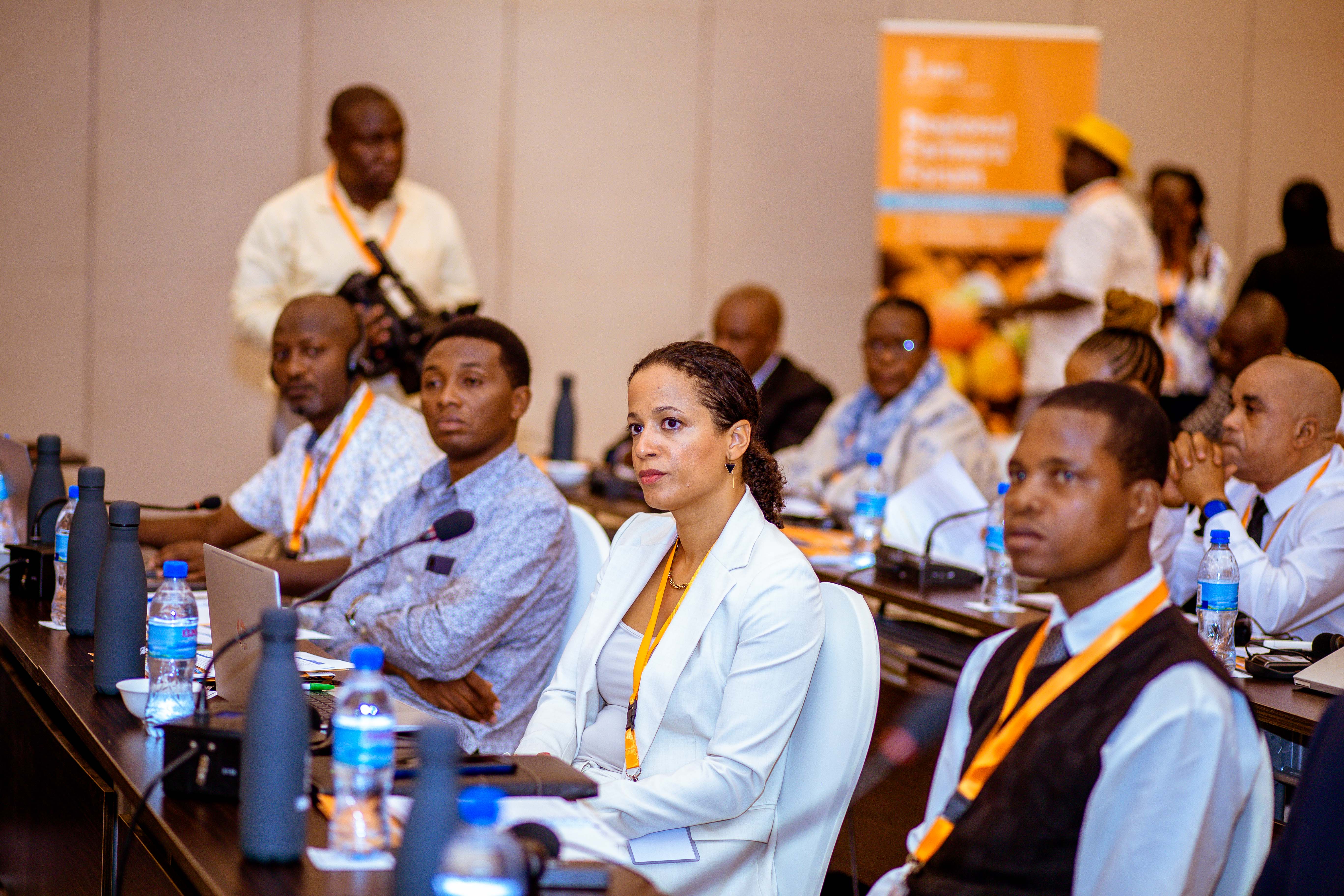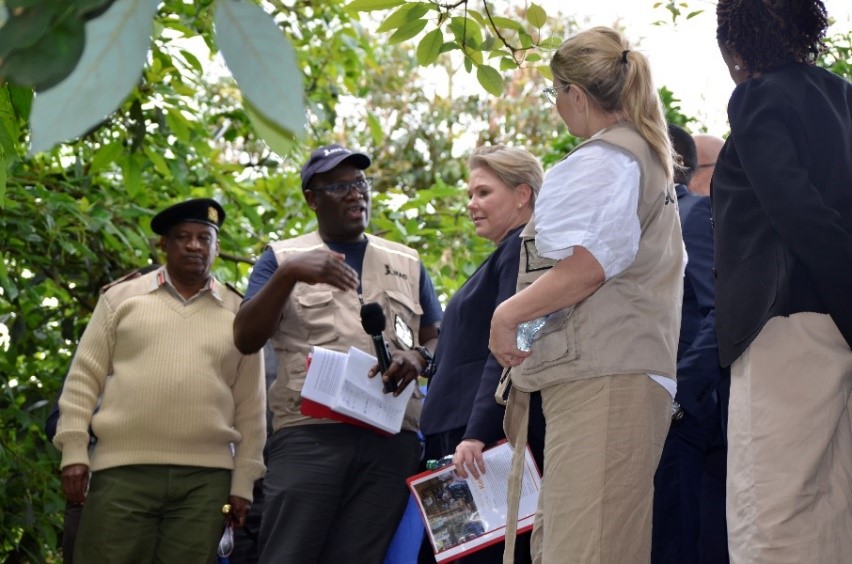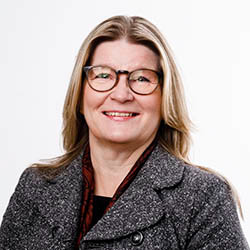Why ownership matters: What I learned from farmers in Kenya and Tanzania
IFAD Asset Request Portlet
Asset Publisher
Why ownership matters: What I learned from farmers in Kenya and Tanzania
Estimated reading time: 3 minutesThe crystal blue waters of the Indian Ocean lap onto the shores of Bagamoyo, a town just north of Tanzania’s capital, Dar es Salaam. Known for its rich historical heritage and open landscapes, the coastal strip is mainly savannah and bushy, while the hinterland is dense with forest.
Like most coastal towns, life is laid back and no one is ever in a hurry. The warm and welcoming people here mainly make a living from four industries: tourism, salt mining, aquaculture and farming.
Despite its importance to the local economy, agriculture has failed to significantly reduce poverty here because many small-scale farmers do not have access to financial services, markets or opportunities to add value to their products.
Lasting change
The IFAD-supported Marketing Infrastructure, Value Addition and Rural Finance Support (MIVARF) programme changed this.
Before MIVARF, Wilfred Nazari faced many challenges, including low crop yields and food insecurity. But thanks to training on good agronomic practices, he doubled—and in some seasons even tripled—his yields.
Although the programme ended in 2020, Wilfred no longer has to worry about food security, especially because he’s investing his extra income in other agri-enterprises.

Ownership leads to longevity
This sustainable change, for those of us who know IFAD, is not surprising. IFAD is different because long-term development and resilience lies at the heart of every single thing we do. It always has.
We develop all our projects and programmes in close collaboration with local and national governments, partners and rural people. This doesn’t just create “a sense of ownership”. It is ownership. And by truly owning the projects, participants are invested in them, so their impact lives on, even after IFAD is gone.
Farmers take to the fore
At the regional Farmers’ Forum in Dar es Salaam, I heard more inspiring examples of how farmers are facing up to new challenges with IFAD’s help to ensure a brighter future for them and the young people in East and Southern Africa.
Here, over 60 farmer representatives from the region came together to discuss how to transform rural food systems, ensure their voices are heard, and improve their livelihoods and resilience. IFAD has always worked closely with farmers’ organisations, and I was honoured to take part in this brilliant example of decentralised engagement. It is vital that we engage with them and other civil society organizations throughout all IFAD does.

The crucial mile
Within IFAD, we often talk about supporting people in “the last mile” of food systems. In reality, for me, these people are at the very beginning—the first mile—of food systems. They’re the ones preparing the ground and growing the food that nourishes people around the world. And, after all, urban cities would be nothing without thriving rural communities around them.
This first (or last) mile is what truly sets IFAD apart. I saw this for myself in the IFAD-supported Aquaculture Business Development Programme (ABDP) in Kiambu County, in Kenya. This programme blends public and private sector investments with community initiatives to help small-scale aquaculture producers benefit from sustainable fish production.

With Norway’s Minister for International Development, Anne Beathe Tvinnereim, we met the Mahiha Supa Aqua youth group who, with support from ABDP, are producing low cost fish food, solving one of the biggest challenges that small-scale aquaculture producers face and potentially transforming aquaculture in the community.
Describing the win-win partnership between Norway and IFAD, Minister Tvinnereim said “you get food security, job creation and all this is done with local sustainable resources. Sustainable food production for local development. That is what we like to see.”
A sustainable future
Despite new challenges like climate change and high input prices, the people I met in Kenya and Tanzania are not only managing to support themselves but are also creating new opportunities for their families and their communities. As Minister Tvinnereim said, this is what sustainable, long-term development is all about.
Publication date: 08 December 2022